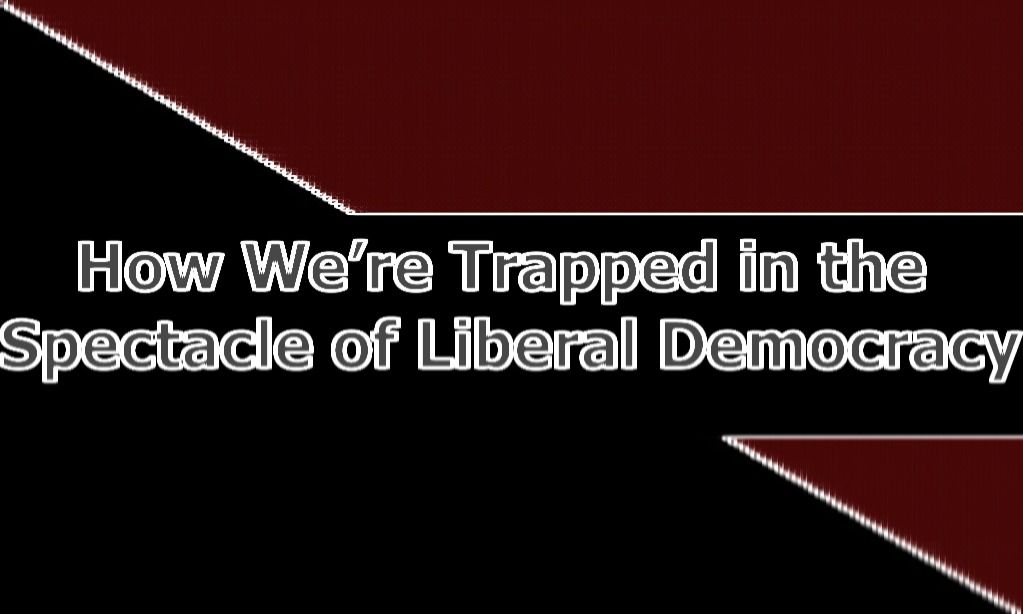How We're Trapped in the Spectacle of Liberal Democracy
"When picturing the revolutionary in the Sudanese Revolution, in Syria, in Chile, or in anywhere else in the world, don't forget to imagine how difficult it would be for them to adapt to American activist spaces because of our lack of collective tenacity."

Black Rose / Rosa Negra Anarchist Federation invited Mohammed E., a PhD student in Sociology, to speak on his experiences with the Sudanese Revolution. What I personally received that evening from him was a detailed account of the practical elements of the Art of Revolution.
According to Mohammed's brief summary, the 2019 Sudanese Revolution, which was sparked in April, involved sit-ins, shutdowns, occupations, and strikes all over the country, which eventually culminated with a gruesome massacre of the Sudanese people on June 3rd. While illegal union coalitions and the youth of the country had already been organizing up to that point, it was from there on that radical international solidarity and a true Cultural Resistance was built.
What do those in the United States need to take away from these formations that assembled the coalitions needed for popular power in Sudan?
Primarily, Mohammed argued that the paradoxes of our time needed to be addressed. Why in the US are we escorted by the police as we protest against them? It only aestheticizes the struggles that should be dealt with strategically and alongside our neighbors. We are not taking the actions that most intimidate oppressive systems, nor do we truly believe that we will ever achieve needed justice for ourselves. Americans consider the revolutionary practices of the Sudanese Revolution as lesser, despite the lack of even liberal democracy in such places.
The aestheticization of struggle also results in the subculturing of anarchist theory. Our methodology is what promotes our growth, and if that action is superficial, so become the revolutionaries. Thus, our focus as revolutionaries should be to realign our preoccupations from actions that provoke from within to actions that burst from below. We should not come to consciousness as a movement only during a massacre, but already be so connected to these grassroots movements that we are able to supply and support them as radically as we ought to with our own.
To Mohammed, the strengths of anarchism haven’t developed just due to its theory, but because of its resilience in practice and especially in situations of scarcity. What Sudan shows is the power of the mass movement and how organically anarchist practices can spread — the necessity of the cadres of intermediary spaces that can use themselves to spread class consciousness, and the need for those cadres to be prepared. In conjunction with this, we must also build interpersonal neighborhood coalitions and councils, both in our own lives and in the communities we organize, to assist in mutual aid in order to properly be prepared to sacrifice what we must, when we must.
When picturing the revolutionary in the Sudanese Revolution, in Syria, in Chile, or in anywhere else in the world, don't forget to imagine how difficult it would be for them to adapt to American activist spaces because of our lack of collective tenacity.
